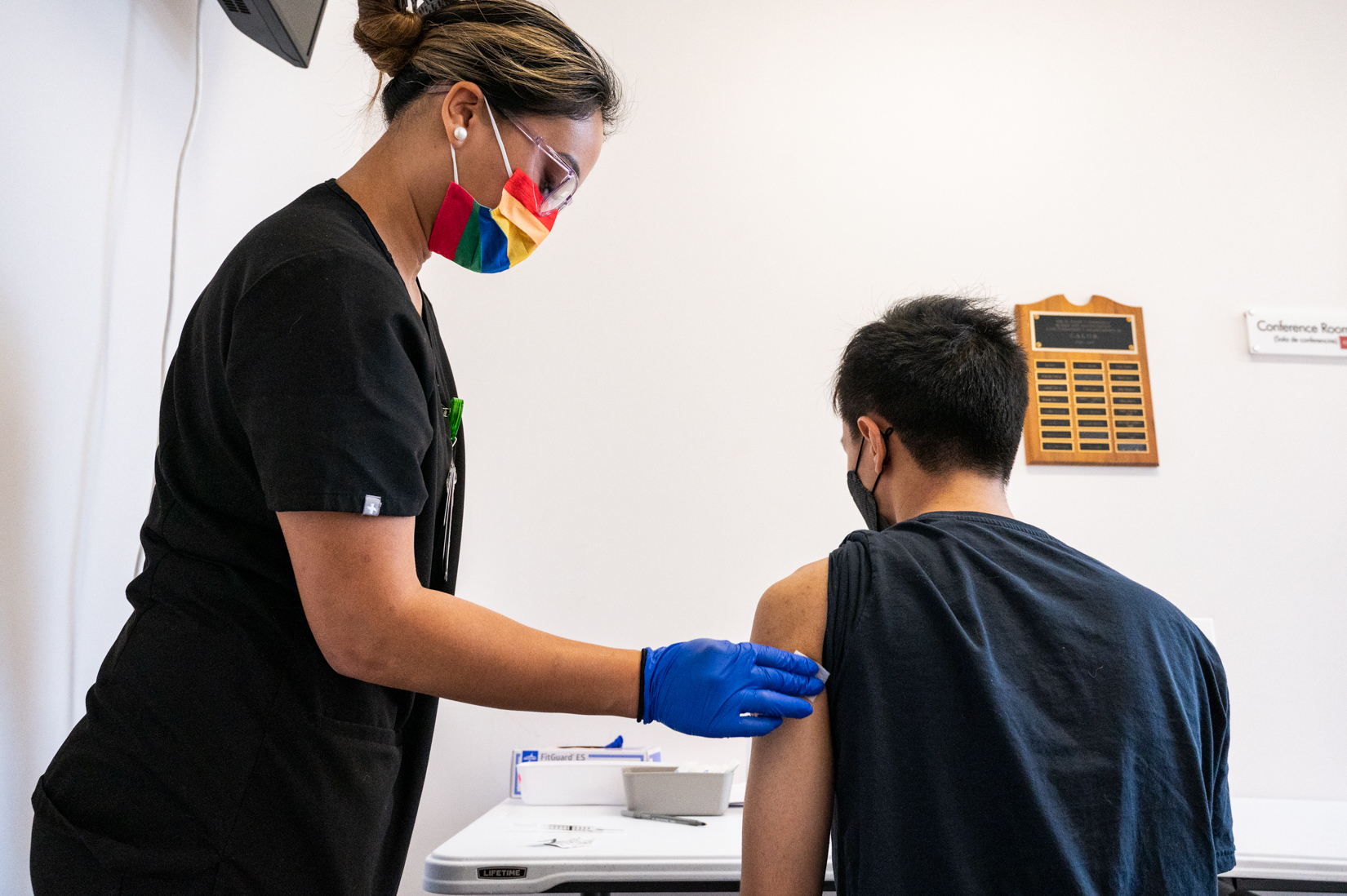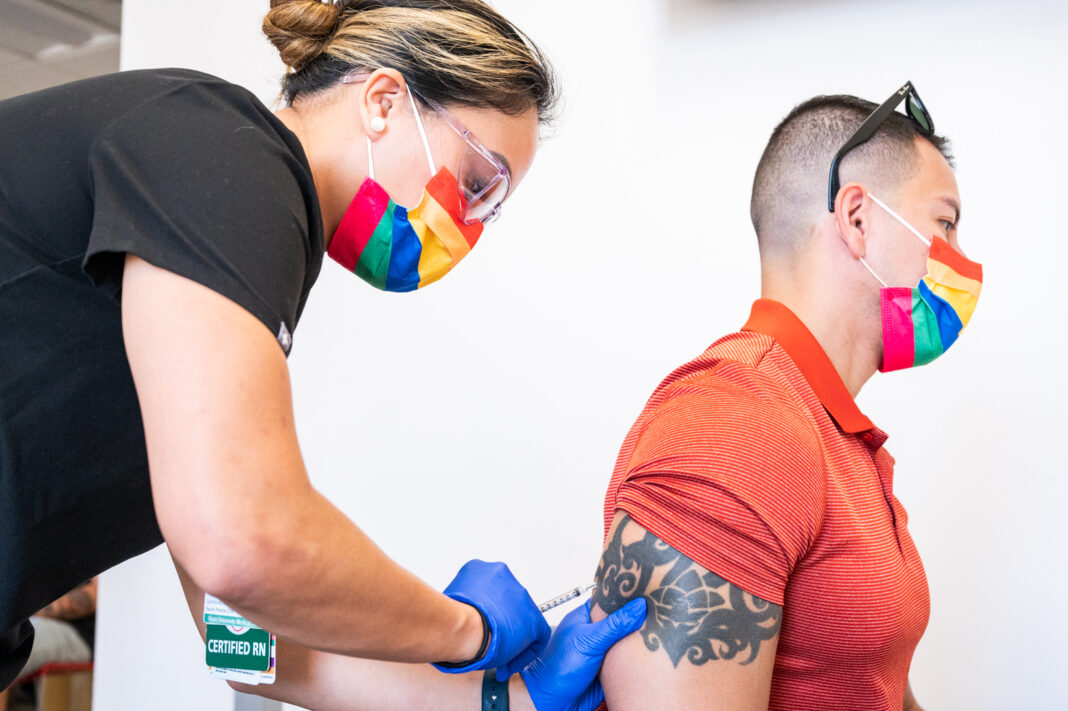CITYWIDE — Local health officials are urging Chicagoans to get vaccinated against mpox amid a spike in cases.
There have been 81 new cases of mpox, formerly known as monkeypox, reported in Chicago over the past six months — and 90 percent of them have been diagnosed since June 10, according to the Chicago Department of Public Health. Fourteen new cases were reported Sept. 9-15 alone.
Mpox has particularly affected gay, bisexual and same-gender-loving men in Chicago.
Dr. Andrew Crone, infectious disease specialist physician at Howard Brown, said his organization’s clinic has seen the increase — and vaccination remains key to reducing the severity of illness.
“While we can and have seen cases in both vaccinated and unvaccinated individuals, vaccination can still provide good protection and minimize the severity of the symptoms experienced if a person is infected,” Crone said in an emailed statement.
Symptoms can range from mild to severe, including bumps or sores and significant anal pain. Anyone with symptoms should get tested and isolated until they receive a diagnosis, Crone said.
Treatment is largely supportive care and pain management until the infection resolves. Health officials are also reminding people who only received one dose of the two-dose vaccine series to complete the series for stronger protection.
To combat the surge, the health department is making mpox vaccination the centerpiece of clinics this fall where people can also get flu and COVID shots. The mpox vaccine is also available at the city’s Sexual Health Clinics in Lakeview, Austin and Roseland.
“While anyone can get mpox, this summer’s increase has disproportionately affected sexually active gay, bisexual, and same-gender-loving men,” health department officials said in a press release. “Adding the mpox vaccine to your fall health routine is the best way to protect yourself and your community.”
How Does Mpox Spread?
According to the Centers for Disease Control and Prevention, mpox spreads through:
- Direct contact with a person’s infectious rash, scabs or body fluids.
- Respiratory secretions during prolonged face-to-face contact or intimate physical contact, such as kissing, cuddling or sex.
- Touching items — like clothing or bedding — that have previously touched a person’s infectious rash or body fluids.
- From an infected pregnant person to a fetus.
- Infected animals scratching, biting or being consumed.
- People can spread the virus from the time they show symptoms until their rash has fully healed. Those without symptoms cannot spread mpox.
Symptoms Of Mpox
The most notable symptom is a rash that can resemble pimples or blisters, appearing on the face, hands, chest, genitals or anus. The rash can also develop internally, making it painful to eat, drink or use the bathroom.
Other common symptoms include:
- Fever
- Headache
- Muscle and back aches
- Swollen lymph nodes
- Chills
- Exhaustion
The rash can be “excruciatingly painful,” health experts have warned. Anyone experiencing these symptoms should seek medical care and testing.

What To Do If You Think You Have Mpox
- Isolate from others and avoid skin-to-skin contact.
- Do not share bedding, towels or other linens.
- Avoid sex or intimacy until evaluated by a medical professional.
- Contact a health provider or call the health department at 312-746-4835 to get connected to testing and care.
Who Can Get Vaccinated In Chicago
Vaccines are available to anyone in Illinois who fits any of these criteria:
- Anyone who has had skin-to-skin contact with someone diagnosed with mpox.
- People who exchange sex for goods or services.
- People living with HIV, particularly those not in regular care.
- People taking or eligible for PrEP.
- Sexually active gay, bisexual and same-gender-loving men.
- Sexually active transgender people.
- Sexual partners of the above groups.
Where To Get Vaccinated
The Chicago Department of Public Health has a map of clinics where people can be vaccinated.
Howard Brown Health’s clinics also offer vaccines by appointment or walk in. Find a location nearest you here.
Listen to the Block Club Chicago podcast:
First Appeared on
Source link




